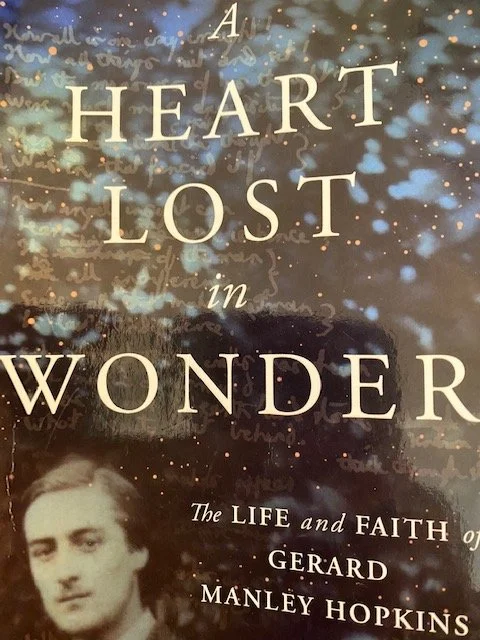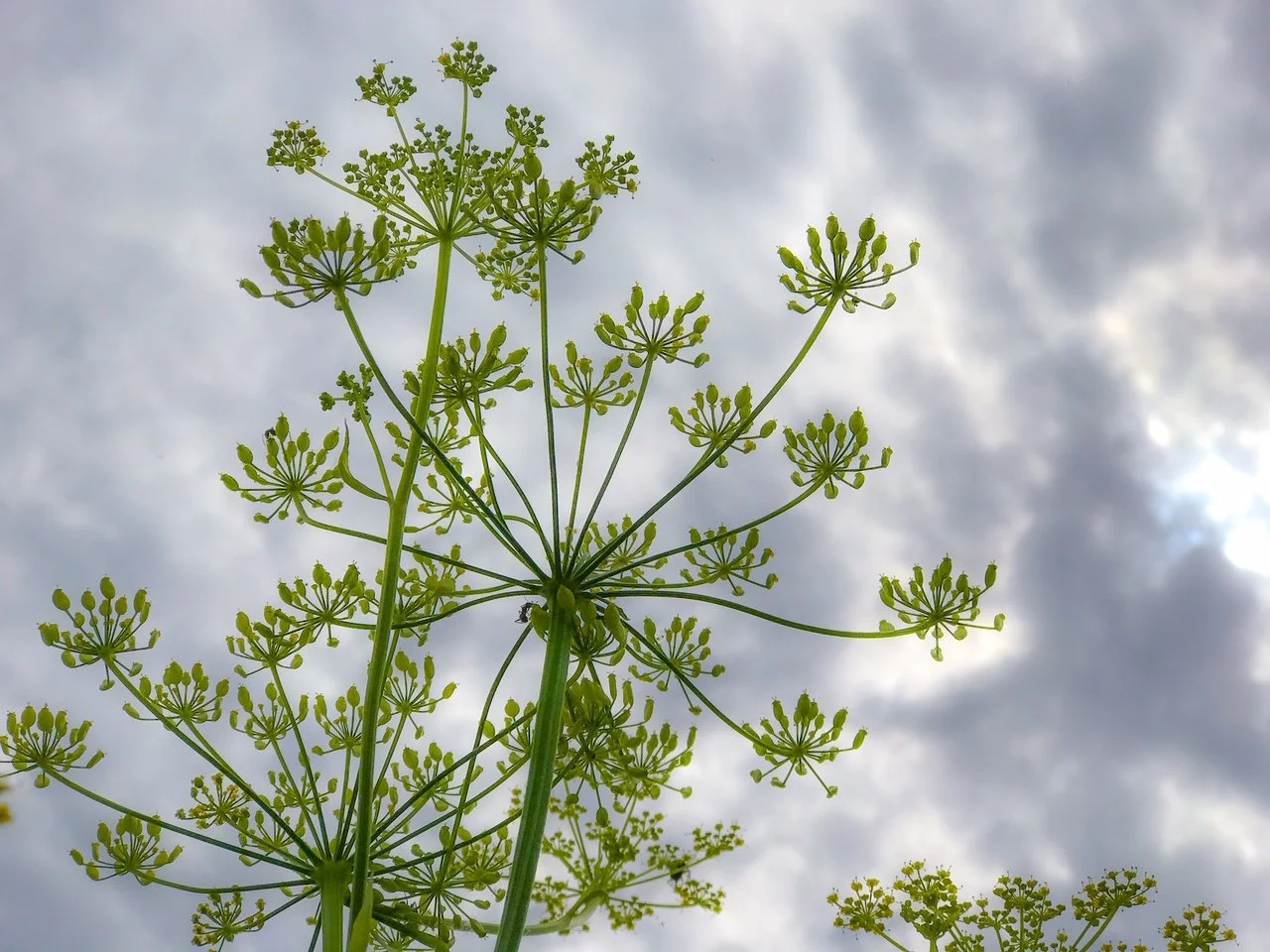Review of “A Heart Lost in Wonder”
NOTE: My review was first published on the Englewood Review of Books website, one of my favorite places to find engaging works.
In A Heart Lost in Wonder: The Life and Faith of Gerard Manley Hopkins, Catherine Randall sets out to give us an “accessible, reader-friendly version of Gerard’s life” that “takes his theology seriously because he took it seriously.” She succeeds admirably, showing that Hopkins’ poetry, while quirky, flowed from a world he saw as “charged with the grandeur of God.” A Heart Lost in Wonder is such an apt title, as Randall creates a sense of intimacy with Hopkins, who she refers to simply as “Gerard” throughout the work. Therefore, her book is just right for a person like me, who is intrigued, but at times intimidated by the complexity of Hopkins’ verse.
Randall provides a lively narrative of Gerard Manley Hopkins’ life in mid-19th century England, from his youth to his early death from typhoid at the age of forty-four. The first two chapters, “Preparation,” and “Dedication,” take us from the family environment that nurtured Hopkins’ love for art and nature to his transition from Anglican church member to the Catholic priesthood in the Jesuit order. Randall brings home the reality that, in England at the time, such a move was ruinous to Hopkins’ career prospects and alienated his family. Chapter Three, “Illumination,” evokes the period of Hopkins’ most inspired and joyful literary activity. Chapter Four, “Desolation,” is the anguishing account of Hopkins’ descent into depression. He wonders if his work is futile and is plagued by a sense that God has abandoned him. Before he dies, however, Hopkins has a breakthrough. God seems to have assured Gerard that he has refined him in the fire to be an “immortal diamond.”
Randall’s narrative also incorporates Hopkins’ theological development and its impact on his poetry. His reading of the medieval theologian Duns Scotus verified and strengthened Hopkins’ sense that God reveals himself in nature—not just in mountain vistas, but even more so in its patterned and textured details. As he celebrated in “Pied Beauty”: “Glory be to God for dappled things/ For skies of couple-colour as a brinded cow;/ For rose-moles all in stipple upon trout that swim.” According to Randall, “Scotus gave back to Gerard the senses, legitimized, that Gerard, in his excessive scrupulosity, had viewed with suspicion, and even sought to eradicate” (67). Physical environments had a considerable impact on Hopkins: beauty made him ecstatic, while industrial squalor depressed him. And he had great difficulty in social roles that required leadership.
Randall did an excellent job clarifying some of Hopkins’ terms. Perceiving the English poetry of his day as overly tame and monotonous, he devised what he called “sprung rhythm,” which allowed for greater variety and spontaneity, giving his work a musical feel. “Inscape” refers to how each natural thing has a peculiar distinctiveness. “Instress” is the effect of inscape on the beholder—like “hearing a great symphony” (45). Randall showed these innovations at work in some of Hopkins’ most beloved poems like “The Wreck of the Deutschland,” “The Windhover,” “Pied Beauty,” and “The Caged Lark.”
One of the book’s strengths is it gives context and clarity to a difficult poet. Randall manages to provide a sort of intimacy with her subject. Rather than a detached account of the mechanics of Hopkins’ poetry, she opens a window into his soul that I found very moving. I was taken with Hopkins on some of his ecstatic encounters with beauty in idyllic places. I shared his sorrows in the dark industrial streets of Dublin. Reading A Heart Lost in Wonder has made me more aware (and saddened) that my experience of reality is so mediated by technology. Hopkins’ poems spur me to go out and connect directly with creation. I want to look closer and linger longer.
I also profited from Randall’s look at Hopkins’ period of sorrow. She takes you right into the dark clouds of his feeling of abandonment and makes it impossible to offer a simple moralistic solution. She did not speculate about the causes or assign failure. It reminded me of Mother Teresa and her experience of God’s absence. We so easily fall into “just trust God” clichés when someone is depressed.
The book stimulated me to reflect on Hopkins’ belief in personal uniqueness and intrinsic value. I often struggle with submerging who I am to secure the approval of others. I fear vulnerability.
But what so many enjoy about Hopkin’s poetry is its difference. He challenged me to cultivate rather than conceal my true self. If I believe I am “fearfully and wonderfully made,” and that God has gifted me with certain perceptions of his world, I can create with more confidence.
It was hard to find a weakness in this book. Randall’s stated goal was to provide a reader-friendly introduction to Hopkins that took his Christianity seriously. And she vividly accomplished that. But I will say that I would have appreciated two things: more content and some critical evaluation. The book was, to me, too brief: only 129 pages. And while I appreciated that Randall let Hopkins’ story and poetry stand, I would have valued at least some critical discussion about his theology, view of the church, and attitude toward publishing. For example, when Hopkins leaned toward Scotus over Aquinas, what was at stake? Or perhaps some consideration of Hopkins’ strengths and weaknesses. Was he antisocial in a way that may have hindered him? Was his avoidance of publishing his work needlessly severe? Just a brief framework to think through these matters would have been helpful.
Reading A Heart Lost in Wonder was informative and pleasurable. It is the missing book to help those who are seeking a bit of a tour guide with Hopkins. It also holds great value for those who are well-informed on Hopkins because Randall will remind you how to be passionate about Hopkins’ aesthetics, which will help you introduce others to his work in a way that will bring them pleasure, whether they be friends or students in your classes.
A Heart Lost in Wonder is timely. At this cultural moment, with all the uncertainty and brokenness, we need encounters with beauty more than ever. Even a casual acquaintance with Hopkins’ poems will train your senses to perceive more of the glories of creation.


